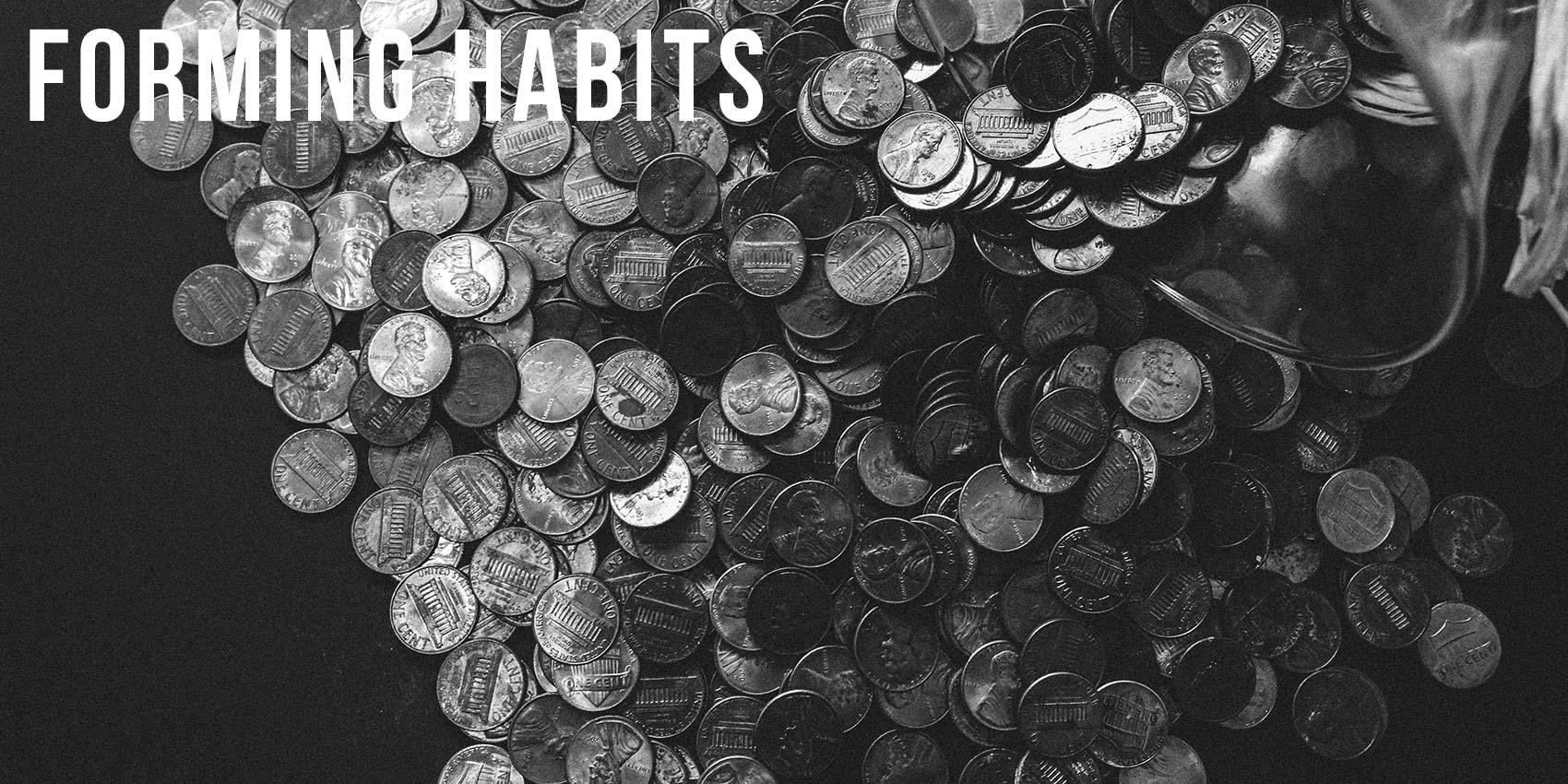07 Apr Forming habits

Good habits are formed when you consciously focus your attention on doing something and then you keep doing it over and over. In time, it becomes habit – you don’t have to focus your attention on it any more, you just do it. Right now you are ripe for forming habits when it comes to money. That’s why this entire post is coming at you at your age – to help you form smart money habits.
Perhaps the most important habit you can develop at your age is saving. Yes, SAVING, not spending. Although it feels oh-so-good to spend money sometimes, saving is critical to financial health because life will always throw unexpected financial “curve balls” your way.
Repeat out loud: Saving is my best habit.
For instance, you plan on working all summer but then break your leg and lose your camp counsellor position; or your bike gets stolen so you have no way to get to work and have to buy another one; or your best friend is in the hospital and you need to spend money on transportation so you can go visit her with flowers. How will you pay for these things unless you have some savings?
Life happens. Saving money is one of the best ways to prepare for it.

DID YOU KNOW? Instead of keeping your savings at home in your pink piggy bank, you can open a savings account at a bank or have your parents help you. The legal age to have an account is 18, but you can “piggy back” (get it?) off of your parents and have them open one for you. The advantages to that? Lots: 1. You don’t have to hide piggy from your siblings any more. 2. You are less likely to spend on impulse since the money is down at the bank. 3. Savings accounts make you a small amount of money called interest – the subject of the Bonus YSS.
How much should you save? That all depends on what your goals are and what your income is, but a good rule of thumb (not pinky) is to save 1/4 to 1/3 of your income if you can.

DID YOU KNOW? Some people create three “jars”: One for fun/spending, one for savings, and one for charity. The distribution is up to you.
Here are some other habits you might wish to form:
- Avoid debt. Don’t get yourself into a debt situation from which you see no way to recover. If you need to borrow money from someone make sure you have a clear and realistic plan on how to pay the money back. Be careful about getting a credit card (you can read why in a post below) as it is a really easy way to get yourself into debt.
- Set goals! Reread the previous post and make some financial goals for yourself right now. Make a realistic plan on how to achieve those goals.
- Review your finances regularly and make sure you are meeting your goals. If not, reset your goals and adjust your plans. Without review, you are sticking your head in the sand and you won’t find any buried treasures down there. Part of being financially responsible means making sure that you are aware of what you are doing.
Also, consider finding a money mentor. Who do you know who is successful with money and can help you? Adults are often more than happy to provide financial advice.
The habits you begin now will serve you for a lifetime. Saving is one habit you definitely want to develop. Emotional spending is something you want to avoid. What is that? On to the next post!




Post Question:
Name a habit you’d like to create today to help you save for tomorrow.
Answer the post question here
What's being said